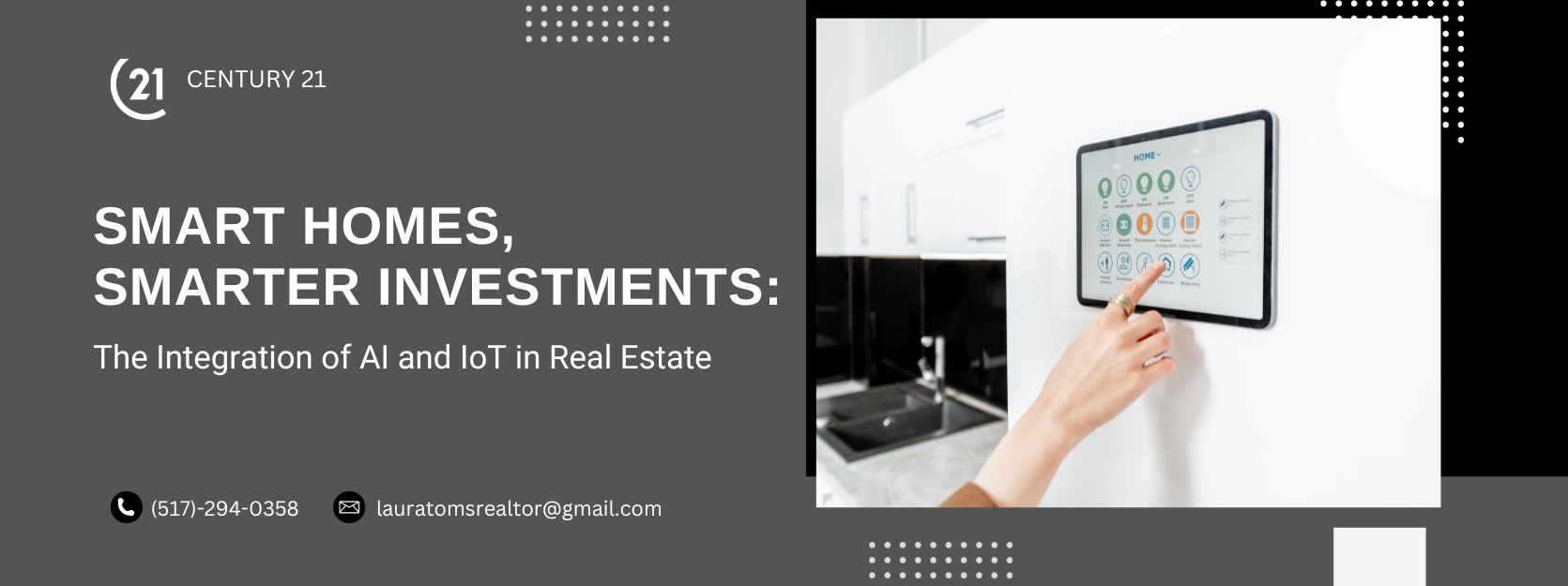In the ever-evolving landscape of real estate, the emergence of smart home technology has not only transformed the way we live but has also become a game-changer in property investments. The integration of Artificial Intelligence (AI) and the Internet of Things (IoT) has given rise to homes that are not just intelligent but intuitive, enhancing property values, security measures, and the overall home-buying experience. Let’s explore the latest advancements in AI and IoT and their profound impact on the real estate market.
Enhanced Property Values:
Smart home technology is increasingly becoming a desirable feature for homebuyers and has evolved into a crucial factor that significantly boosts property values. Homes equipped with AI-powered devices and IoT connectivity are seen as more attractive and convenient, appealing to a tech-savvy generation. From smart thermostats optimizing energy efficiency to automated lighting systems, these features can make a property stand out in a competitive market, potentially leading to increased resale value.
Security Reinvented:
The fusion of AI and IoT has revolutionized home security. Smart surveillance systems, doorbell cameras, and intelligent locks provide homeowners with real-time monitoring and control. AI algorithms can analyze patterns, detect unusual activities and send instant alerts, thereby offering a heightened sense of security. The perception of a well-protected home contributes significantly to its desirability and market value.
Energy Efficiency and Sustainability:
AI and IoT have ushered in a new era of energy-efficient and sustainable homes. Smart thermostats, lighting systems, and appliances optimize energy consumption based on usage patterns, reducing utility costs and minimizing environmental impact. These innovations not only reduce energy consumption but also appeal to environmentally conscious homebuyers, contributing to a home’s overall marketability.
IoT Sensors for Property Maintenance:
The integration of IoT sensors enables predictive property maintenance. These sensors can monitor the condition of various elements in a home, from HVAC systems to plumbing. By predicting potential issues before they escalate, homeowners can address maintenance proactively, preventing costly repairs and preserving the property’s long-term value.
Integration of Smart Home Ecosystems:
The future of smart homes lies in the seamless integration of various devices into a cohesive ecosystem. AI-driven platforms can centralize control, allowing homeowners to manage lighting, security, temperature, and entertainment systems from a single interface. This integration not only enhances the overall functionality of a home but also contributes to a more streamlined and efficient living experience.
The Rise of Smart Communities:
Beyond individual homes, AI and IoT are influencing the development of smart communities. Integration at a community level includes features like smart street lighting, waste management, and security systems. This comprehensive approach to smart living contributes to the overall attractiveness of a neighborhood, influencing property values across the community.
As AI and IoT continue to advance, the integration of smart home technology in real estate is proving to be a game-changer. From increasing property values to redefining security standards, these innovations are shaping homes into not just dwellings but intelligent investments. The era of smart homes has dawned, and with each technological stride, the real estate landscape is poised for a future where innovation and connectivity define the way we live and invest in homes.


 Facebook
Facebook
 X
X
 Pinterest
Pinterest
 Copy Link
Copy Link


